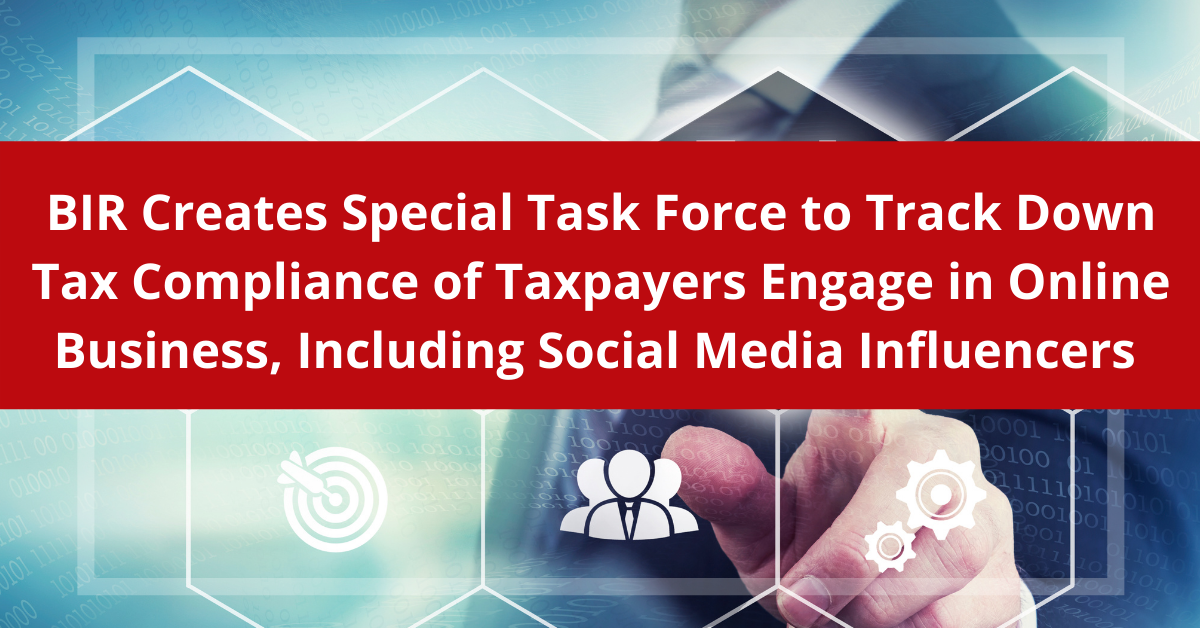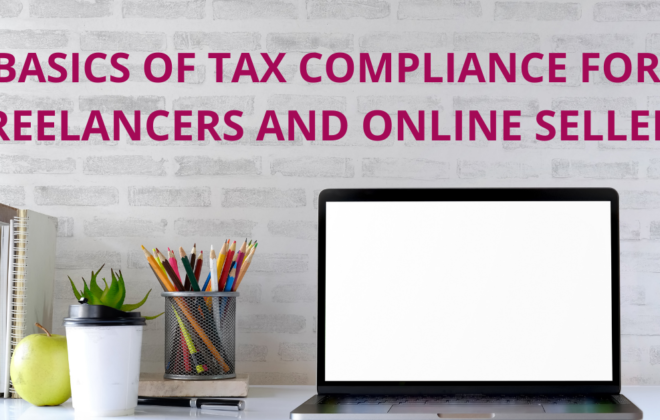BIR Creates Special Task Force to Track Down Tax Compliance of Taxpayers Engage in Online Business, Including Social Media Influencers
If you are doing business in the Philippines, you are expected to pay your taxes. It is your duty to register your business, file and pay your taxes according to your business type. Even if you are not earning, have negative revenue and there are no tax dues for the year, you still need to file the tax returns. That is just part of the tax compliance.
What is the legal basis of taxes in the Philippines?
Under Section 236 of the Philippine Tax Code, all persons subject to any internal revenue tax shall register with the Revenue District Office having jurisdiction over their business or address on or before the commencement of business.
Moreover, Section 23 of the same code states that all earnings of Filipino citizens residing in the Philippines are taxable, whether earned within or outside the country.
Therefore, all businesses, including online merchants, must register their business and pay the corresponding tax dues on their revenues based on these provisions.
What is the purpose of BIR’s Special Task Force?
The pandemic has changed our routines and lifestyle. Most of our transactions are done using third-party applications, such as Facebook, Instagram, YouTube, Airbnb, Lazada, and Shopee, among others.
With the growing popularity, ease, and convenience of accomplishing our business through these digital platforms, the country’s tax collector sees the need to beef up the collection efforts by directing RDOs to assign a dedicated task force to monitor and verify the tax compliance of affected taxpayers.
Under Revenue Memorandum Order (RMO) No. 29-2021, the special task force will gather relevant information and create a record of all online sellers of goods and services, including Social Media Influencers.
Also, the task force will identify online merchants who are not registered with the BIR and assess the tax compliance of registered taxpayers.
How does BIR determine if a taxpayer is tax compliant or not?
RMO 29-2021 empowers BIR officers to evaluate the taxpayer’s compliance by checking their books of accounts and tax returns. They are also authorized to look into the timeliness of tax filing and payments.
Registered taxpayers are expected to pay the annual registration fee, issue sales or official receipts to their customers, maintain the books of accounts, and timely filing and payment of applicable taxes.
Initially, if you are doing the basic tax compliance requirements, then you are considered a registered taxpayer in good standing.
What is at stake for non-compliant taxpayers?
If the bureau finds you not following the tax code, here are the risks.
BIR will send a Letter of Authority informing you that revenue officers will check your books and other records to determine your tax liabilities. Then, you will pay the correct taxes plus surcharge and penalties.
The bureau will file tax evasion cases against you in the worst-case scenario.
Are earnings before RMO 29-2021 subject to taxes?
Yes, taxes for all earnings within and outside the Philippines is highlighted in Section 236 of the tax code. Aside from paying the basic tax, you need to pay the surcharge and other penalties.
Can we help you with your tax compliance?
Starting a business is not easy. When you are just starting out, every cost counts. You do not want to spend on something unnecessary, like tax penalties and so on.
We at DJKA Accounting Services can help you take care of your accounting, bookkeeping, and tax compliance needs. In that way, you can focus on more important things like growing your business. Just send us an email at info@djkaaccounting.com to request a quote.
Related Posts
Recent Posts
- New Features and Functionalities of the Online Registration and Update System (ORUS)
- A Comprehensive Guide to Taxation for Freelancers in the Philippines
- New Tax Laws in 2024: What Changes Filipino Taxpayers Should Prepare For
- How to Avoid Common Tax Mistakes in 2024
- Tax Deductions and Benefits Often Overlooked by Filipino Taxpayers





